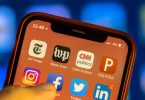When brands take the time to get to know their consumer they often find it easier to conjure up wonderful, impactful ads. However, there are some brands that like doing business without research regardless of the consumer and changing demographics. As globalization changes the look of business and how we communicate, brands need to realize the value of engagement. When an audience feels they can relate to a brand, what the brand represents and any collateral that comes from that brand, the more willing consumers are to forge a real connection, offer opportunities for increased sales and act as cultural informants for the creative product of ad placements.
In this week’s PRSA “Friday Five” post — an analysis of the week’s biggest public relations and business news and commentary — we explore the brand behind the ad and how a lack of connection internally, as well as, externally with your audience can deeply impact the success of a company’s ad campaign.
Edgy Ads or Just Really Bad Taste? (Ragan’s PR Daily)
This week, Hyundai Europe, Pepsico, and General Motors issued apologies for ads that featured content making light of very sensitive real-world issues. After three isolated incidents, the question has now become whether the creative minds in advertising should check in with PR before using controversial material to boost sales. PR and marketing communications professional Karen Swim says that there should be checks and balances before pushing any messaging out to the public. What one department might thinks is pure genius, the other might find the possible backlash from releasing such information and could save a brand from a crash and burn ad like the ones released by the aforementioned companies.
Abercrombie & Fitch CEO Allegedly Doesn’t Want Fat or Uncool Customers (PRNewser)
In an interview with Business Insider, Robin Lewis, co-author of The New Rules of Retail, talked about Abercrombie & Fitch CEO Mike Jeffries and his view on his very excluding brand. Lewis said that Jeffries “doesn’t want larger people shopping in his store, he wants thin and beautiful people.” The quote is much longer but the principle remains the same. According to Jeffries fat people equal ugly and uncool, while thin people equal attractive and represent the cool kid demographic that A&F is looking for. Some communications professionals have questioned Jeffries lack of inclusion, seeing this lean toward a stereotypical standard of beauty eliminates a large majority of the U.S. population. Jeffries on the other hand believes that other retailers that are in trouble from poor sales, have succumb to such problems because they cater to a broader customer base, instead of picking one demographic and tailoring all efforts, marketing, communications, advertising, etc. toward that one particular group.
Coca-Cola Vows to Reduce Advertising to Kids (Advertising Age)
Coca-Cola and other sugary beverage brands have been under fire lately, as numerous advocacy groups blame the soft-drink giant for the rise in global obesity. In a statement made on Wednesday, the Atlanta-based beverage company vowed to slash advertising to children. Coca-Cola plans to take a four-pronged approach to help fight obesity, which will include a pledge to stop advertising to children under the age of 12 in any medium. While there won’t be a complete elimination of this targeted-advertising, the company’s goal is to create advertising standards very close to the ones in the U.S., where they will only advertise to audiences where no more than 35% of viewers are children. The plan will also support physical activity, transparent nutrition information and increased access to low or no-calorie beverages.
AT&T’s Kid Focus Group Declares Moms Are The Best (Fast Company)
AT&T’s ongoing campaign “It’s Not Complicated” has warmed some hearts with their latest Mother’s Day-themed ad. As all the ads in this campaign do, a moderator asks a question about what is better – big or little – to a roundtable of children; however, this particular ad focused on hugs and what followed was a touching session where the kids talk about how their moms give the best hugs and are the best snugglers and squeezers.
Rae Ann Fera, a contributor to Co.Create believes the authenticity of this ad is what makes it work. AT&T CMO David Christopher says it came from an authentic moment on set. He explained, “Our goal with ‘It’s Not Complicated’ was to find a campaign that would build familiarity where each message could live as a part of a whole–all while being as simple and straightforward as possible. That’s what resonates so well with consumers.”
The Story Behind ‘This Is Water,’ the Inspiring Video People Can’t Stop Watching (AdWeek)
AdWeek’s David Griner takes a look at a new viral video from a small video production company in Los Angeles, “The Glossary”. The Glossary’s video “This Is Water” gives viewers a cinematic interpretation of literary prodigy David Foster Wallace’s “bleak-yet-inspiring” commencement speech at Kenyon College in 2005.
The cash-strapped studio appears to have struck gold with this short film, which garnered over a million views in just 24 hours. A company representative explained that its success is linked to reaching the right audience. They said, “Our main goal was to expose people to the content of the speech. But as members of a generation that is often referred to as ‘generation me,’ we felt like this message actually changed the way we thought about life in a way that went beyond the typical clichéd advice into something actually useful.”
Nicole Castro is the public relations associate at the Public Relations Society of America.






